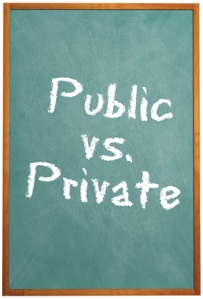Research Evidence vs Soaring Ideology: School Vouchers and Achievement
Student voucher advocates promised that school vouchers would boost academic achievement for the economically disadvantaged and students of color. Yet, voucher proponents rarely cite independent, peer-reviewed, and scientific research purporting increased academic achievement from school vouchers. However, according to Ravitch (2011), studies of voucher programs in Washington, DC, Cleveland, Milwaukee, and other areas demonstrate that vouchers have negligible effects on student academic achievement. Simply put, school vouchers fail to deliver on improving student achievement significantly or consistently for targeted students who made the choice to move from public to private schools.
A review of current research on school vouchers and academic achievement suggests that truly statistically significant achievement gains for voucher students in a variety of state-based voucher experiments are limited and inconsistent across student groups Weaver (2011). Research conducted on the effect vouchers on student academic achievement offers no compelling evidence to justify initiating or expanding the use of school vouchers. As stated by Barrow and Rouse (2009), “the best research to date finds relatively small achievement gains for students offered education vouchers, most of which are not statistically different from zero.” In an overview of nationwide voucher experimentation, Belfield and Levin also concluded
Empirical evidence has not settled the issue to the satisfaction of those who have not made prior commitments to one side or the other. To this point, some of the studies have found small, positive impacts of choice, competition, and vouchers on student achievement; others have found none. No study has found any substantial difference in student achievement, for example, an impact that would potentially close the achievement gap among races (2005, p. 550).
Notably, Education Week (2011) reviewed the existing research on school vouchers and student achievement and found that much of the existing research purporting voucher success was sponsored or funded by organizations that support vouchers. It is very difficult to find rigorous scientific studies conclusively demonstrating that vouchers have a positive, empirically measurable impact on student achievement. Educational policy must be based on data and research rather than soaring ideology. In sum, U.S. studies indicate that data is at best, inconclusive on the net effects vouchers have on educational access and student achievement (Ladd, 2002). Thus, contrary to the claims of many voucher advocates, widespread implementation of school vouchers is not likely to generate substantial gains in student achievement or in the productivity of the U.S. K-12 education system (Ladd, 2003).
The last post in the domestic vouchers series on CI will examine vouchers and educational equity. See the full thread on vouchers here.
Special thanks to my collaborators on this series: Anthony LeClair, Melinda A. Lemke and Allen McMurrey.
See first post in the series here for references.
This blog post has been shared by permission from the author.
Readers wishing to comment on the content are encouraged to do so via the link to the original post.
Find the original post here:
The views expressed by the blogger are not necessarily those of NEPC.

